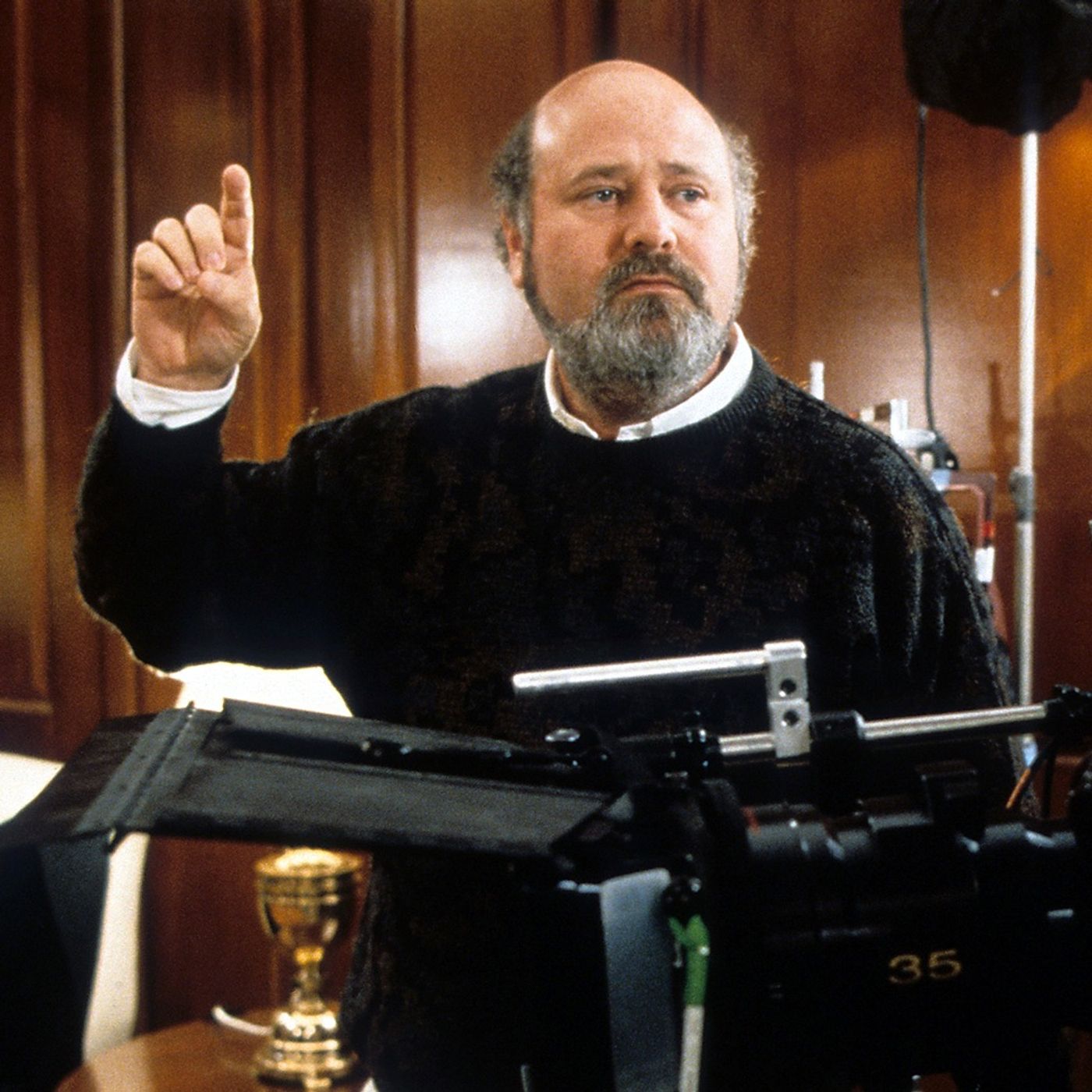Where ‘The Daily’ Gets Its Music
Dan Powell and Marion Lozano, who compose the music for the show, discuss the D.N.A. of the “Daily” music and walk us through the process.
Press play and read along
Transcript
Speaker 1 This podcast is supported by the Capital One Venture X Card. VentureX offers the premium benefits you expect, like a $300 annual Capital One travel credit, for less than you expect.
Speaker 1 Elevate your earn with unlimited double miles on every purchase, bringing you one step closer to your next dream destination. Plus, enjoy access to over 1,000 airport lounges worldwide.
Speaker 1
The Capital One Venture X Card, what's in your wallet? Terms apply. Lounge access is subject to change.
See CapitalOne.com for details.
Speaker 2 Here at the daily, we have something really special and a little unusual, which is our own in-house composers.
Speaker 2 So today, a conversation with two of the people who make the music you hear on the daily: Dan Powell and Marion Lozano.
Speaker 2 For this episode, I'm turning the host mic over to someone else who's normally behind the scenes of the show, daily producer Michael Simon Johnson.
Speaker 2 Thanks so much for subscribing, and as always, for listening. It's Saturday, October 25th.
Speaker 3
Dan, Marion, thanks for sitting down to talk with me for a few minutes about music. Thanks for having us.
Yeah, happy to be here. Listeners may not be familiar with any of us, actually.
Speaker 3 I'm Michael Simon Johnson. I'm a senior producer on the show.
Speaker 3 And what part of being a producer means is that when we work on episodes, we pick out the music to score certain sections from this growing library of tracks.
Speaker 3 And most of that music is written by a team of composers that we have, which includes the two of you. Dan, you are our creative technical manager.
Speaker 3
And you're also the composer that's been here the longest. Correct.
Marion, you've also been here quite a while. And both of you are composers whose music we use a lot on the daily.
Honored.
Speaker 3
We're super lucky to have you guys. I feel grateful for you every day.
And so I know a lot of the other producers do too. But you are spending a good portion of your day.
Speaker 3 I don't actually know how much, but you're spending a good portion of your week, I guess, composing music that is added to this library that we pull from. Is that right?
Speaker 4 Yes. It can vary week by week depending on the show, but The Daily is by far the largest library of any of our shows.
Speaker 4 And it's probably the one we've spent the net total greatest amount of time writing music for.
Speaker 3
You're welcome. Yes.
Thank you. Well, I wanted to to ask you guys about composing music for the daily specifically.
Speaker 3 When the editorial team, when the producers and the editors are sitting around thinking about what kinds of episodes we want to make, you know, we have a certain criteria.
Speaker 3 Does this sound like a daily episode to us? Does this story feel like a daily episode? We have an idea about what that means. Certain kinds of story arcs.
Speaker 3 Does it have clear takeaways, that kind of thing? But I imagine for you, thinking about what the daily means is very different. So, what is making a song for the daily mean to you?
Speaker 4 Well, I think the DNA of all daily music comes from one place, which is the theme song.
Speaker 4 Written by Wonderly, which is a great theme song.
Speaker 4
I think it's kind of the primordial soup from which all of our cues have spawned. And there are a few elements to that.
There's a certain amount of momentum and propulsiveness.
Speaker 4 There's the instrumentation that's very heavy on strings, electric bass, electric piano.
Speaker 4
It feels like breaking news. It feels like current events.
It feels like the now that is happening.
Speaker 3 Marion, to the point of what makes something sound daily-esque, I thought we could play a song that you wrote that is one of the most used tracks in the daily. This one is called Looking for Answers.
Speaker 3 I remember this one very well because I wrote it originally for an episode that never aired. So the music was released to the library and I didn't think it would be used right away.
Speaker 3
And this one was used right away. This is classic in my mind.
Those plucky strings, very classic daily sound.
Speaker 3 I think I'm using,
Speaker 3 I think it is a marimba.
Speaker 3
Marimba is something you guys ask me not to use. And sometimes I like to throw it in there as like a, see, you love it.
Marimba has a kind of
Speaker 3
it's seen internally as kind of like a cliche podcast music instrument. That's why.
But the reason it's cliche is because we love it. So you don't have to convince us of that.
Speaker 3 This song I think works well for the daily because of the instrumentation within it.
Speaker 3 Also, it's super minimal. So it just works in a neutral sense because of how minimal it is.
Speaker 3 But instrumentation-wise, strings, marimba, piano,
Speaker 3 the news instrument. Daily.
Speaker 3 Dan, we want to play another highly used song of yours that is called The Unmaking.
Speaker 4 Great.
Speaker 4 So The Unmaking is a type of cue that we would label as an ender, meaning that this is intended to be the last piece of music you hear before the Here's What Else You Need To Know Today headlines part comes in.
Speaker 4 It's intentionally sparse and spread out.
Speaker 4 It also has a reflective character to it, where you're sort of meant to just digest what's happened, what you've just heard, and maybe provoke some thoughts or ruminations about the episode.
Speaker 4 It also starts in this very, very sparse way and gradually brings in a few more things. So there's some pizzicata strings.
Speaker 3 That's that plucky string sound. Correct.
Speaker 4 There's live electric bass, again, very, very sparse. There's this very light drone in the background.
Speaker 4 This is really just designed to be able to slot in in the last minute and a half of an episode in those final exchanges between the host and the reporter.
Speaker 3 This is another popular track that we use a lot from Dan. This is Middle Distance.
Speaker 4 So the main instrument you're hearing in middle distance is a tongue drum. It's called a tongue drum because the individual notes are cut out of the metal in the shape of a tongue, basically.
Speaker 4 And it provides this really nice, warm, tonal sound.
Speaker 4 It's particularly well suited for podcast music because it has a rich sound, but there's not a lot going on frequency-wise in a way that would clash with vocals here. It's very soft and kind of muted.
Speaker 4 There's also an electric bass and some very gentle synth and woodwind drones that enter in.
Speaker 4 But this is another one of those reflective, meditative, hmm, let's ponder for a moment type of tracks.
Speaker 3 All of these are, you know, I hear the first five seconds and I'm like, oh, yeah, no, I know this one. This feels like a kind of like a friend that I see around all the time.
Speaker 3 And it's just interesting thinking about when producers are choosing these tracks, or at least when I am listening to these tracks to try to figure out which one makes the most sense, I listen to them for, you know, 10, 15, 30 seconds, maybe, and I am hearing as it's playing what I think
Speaker 3
that song is supposed to be underneath. But it's just funny because you have a certain idea and I have a certain idea.
And we haven't talked to each other about what those ideas are.
Speaker 3 We just, there's a certain amount of trust. You're just trusting that we have a similar idea in our heads as the producers of the show that we use these songs in the way that you were imagining.
Speaker 3
Yes, agreed. But also, it's cool when you don't have the same idea.
It's just you envisioned it different than how we envisioned it. And that's fine.
Speaker 3 Because we're never telling you how we envisioned it either.
Speaker 3 Well, actually, that sort of brings up an interesting idea we could talk about, which is how often do you make stuff for the daily that is explicitly outside the daily-esque sound?
Speaker 3 How often are you sort of composing against type?
Speaker 4 When I first started working here, I was going through a sort of New York City club kid awakening and going out a lot and getting really into dance music and house and techno. Amazing.
Speaker 4 And so sometimes I would be at the office late on a Friday afternoon or even evening and just make techno tracks and throw them in the Daily Library.
Speaker 4 So there was a lot of experimentation of just, well, let me just make whatever. Maybe the Daily will use this at some point.
Speaker 4 So this is one of those tracks I made. It's called 45 Hydra.
Speaker 4 And it's just sort of a pounding, pulsing, propulsive psychedelic techno.
Speaker 4 It has a lot of atonal and kind of just purely textural layers that warp in and out.
Speaker 4 And I just sort of made this as a jam and then threw it in the daily Dropbox, not thinking that it would ever really get any use.
Speaker 4 But then there was an episode about the WeWork founder, Adam Neumann, who had a lot of very risque behavior as a CEO.
Speaker 4 And during one of the montages in which this was all recounted by the reporter, I heard this track pop in.
Speaker 3 Do we want to listen to that?
Speaker 5
There was We Bank. There was We Sail.
There was We Sleep. There was talk of an airline.
Speaker 4 We fly.
Speaker 5 We fly, presumably. There was talk of We Mars, even putting office space on the red planet.
Speaker 3 That really is wild.
Speaker 5 It was wild.
Speaker 5 So Adam Newman becomes fantastically rich. He also indulges his eccentricities.
Speaker 5 He was known to walk around the office barefoot, but now he's installed a private plunge pool in his office, a cold plunge, an infrared sauna in his office. He has a white Maybach.
Speaker 5 He's like blaring hip-hop as this chauffeur white Maybach takes him all over Manhattan. He also convinced the company to buy a $60 million private plane, which he and other executives hotbox.
Speaker 3 I'm sorry.
Speaker 5 That's, you know, getting high in a confined space with the marijuana smoke filling the cabin.
Speaker 3 Yeah, this is amazing.
Speaker 4 I mean, I'm mainly just proud I could provide the soundtrack to Michael learning what hotboxing is for the first time.
Speaker 3 Yeah.
Speaker 4 Jokes aside, I have this bit. I sometimes say that everything I learned about podcast music, I learned from club music.
Speaker 4 And I'm only half kidding because they are actually serving really similar functional roles.
Speaker 3 Tell us more.
Speaker 4 So podcast music has to be repetitive and minimal in a way where you have things that are repeating so as not to distract the listener, minimal so as not to take away from the voice of the people talking.
Speaker 4 But there also needs to be just the right amount of variation because if it's too repetitive, it's just going to sound like a loop and get old and feel very, very stale and stagnant.
Speaker 3 And the listener will become aware of the music in a way that they shouldn't. Yes.
Speaker 4 want.
Speaker 4 Dance music can actually be very similar in that you're often trying to make things that repeat and vary a little bit over time, but also not so much because things need to stay in a consistent groove.
Speaker 4 So who knows? Maybe the two are cross-disciplinary musical studies, or maybe I'm just trying to justify my off-hours music tastes into my day job.
Speaker 3
As having a professional value. I think it does.
I can hear it in the music that you refer for us, and not just the electronic music, but also.
Speaker 3 I feel very conscious of those small variations that you're talking about.
Speaker 4 You're good. I feel so seen.
Speaker 3 Marion, what kind of music have you written for the show that is the kind of offbeat, non-daily sound?
Speaker 3 Bet's die 90s hip-hop.
Speaker 3 I named this track off of The Neighborhood Beds Diet in Brooklyn because that's where Bae's from.
Speaker 3
And it was originally written for an episode, Rest in Peace, that did not air on 50 Years of Hip Hop. Yes, I was working on that episode.
I was very excited about it. It did not air.
Yes. R.I.P.
Speaker 3 Hip-hop and RB are my favorite genres of music. So any excuse to write in that vein,
Speaker 3 I'm all over.
Speaker 3 So, yeah, I wrote this song that has that classic boom-bap sound, the kick and the snare.
Speaker 3
Very crisp percussion. Yeah, and then there is a bass line and a guitar line that are playing on a loop.
And that's intentional because 90s hip-hop is very much a rapper laying bars over a loop.
Speaker 3 And these loops, I mean, the guitar and the bass also sound like they are derived from some funk song that you found somewhere on an old vinyl in the same way that 90s hip-hop producers would.
Speaker 3 Oh, I wanted to just sound a little gritty, like it was something ripped from a vinyl. So yeah, like samples.
Speaker 3 Sort of a strange question for you guys. What do you hope that listeners take away from the music? Because on the one hand, you're musicians.
Speaker 3 I imagine that when you envisioned being a musician, it was to create music that you wanted people to listen to.
Speaker 3 But the nature of the music that you're writing is to be a little bit more invisible on some level.
Speaker 3 And making music, as you said earlier, Dan, that is too noticeable sort of defeats the whole point of this. So I'm curious about how you think about the listeners engaging with
Speaker 3 your music.
Speaker 3 Yeah,
Speaker 3 I like to think of music and podcast as a highlighter, especially in moments that are very explanary.
Speaker 3 I think sometimes a listener can tune out for a second, and I think of our music as a way to highlight a section.
Speaker 3 And we got to keep it interesting, but not distracting at the same time.
Speaker 4 So there are a lot of layers to it.
Speaker 3 But I think, in general, when I think about the listener, I think about drawing them back in.
Speaker 3 Well, like I said before, I feel the trust that you put in us as producers to use your music adequately and in a way that honors the intention of it.
Speaker 3 And if I haven't expressed this sufficiently enough, I feel very grateful that you guys do what you do, that you do it for this show.
Speaker 3 All of the producers and editors consider the music very, very essential to the show.
Speaker 3 Dan, Marion, thank you so much for stopping by.
Speaker 4 Thank you for having us and something we're very grateful to do on our end as well.
Speaker 3 Yeah, absolutely. Of course.
Speaker 4 We just want to make your life easier when it's 4 a.m. and you need to find, you know, something that you put in, like, oh, God, how am I going to end this?
Speaker 3 You know, that's so real.
Speaker 3 That's like not an exaggeration. So
Speaker 3
I really appreciate it. I hope it's not 4 a.m.
I hope it's more like 3 a.m. Yeah,
Speaker 3 sometimes it's midnight, and that's always nice.
Speaker 3
Thanks, guys. Thank you.
Yeah.
Speaker 2 Today's episode was produced by Michael Simon Johnson and Rochelle Bonja. It was edited by Lexi Diao and Paige Cowitt, contains music by Dan Powell and Marion Lozano, and was engineered by Chris Wood.
Speaker 2 I'm Natalie Kitroff. See you next time.
Speaker 1 This podcast is supported by the International Rescue Committee. Co-founded with help from Albert Einstein, the IRC has been providing humanitarian aid for more than 90 years.
Speaker 1 The IRC helps refugees whose lives are disrupted by conflict and disaster, supporting recovery efforts in places like Gaza and Ukraine, and responding within 72 hours of crisis.
Speaker 1 Donate today by visiting rescue.org/slash rebuild.




